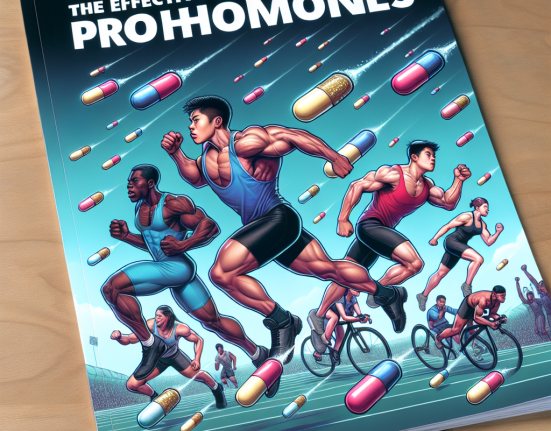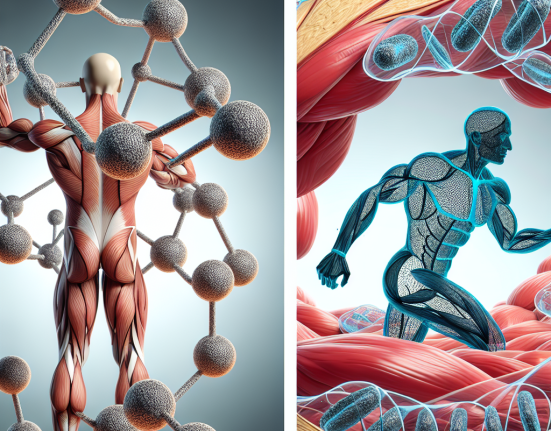-
Table of Contents
- Methyltestosterone: A Powerful Anabolic Steroid for Athletes
- What is Methyltestosterone?
- Pharmacokinetics of Methyltestosterone
- Pharmacodynamics of Methyltestosterone
- Real-World Examples of Methyltestosterone Use in Sports
- Side Effects and Health Risks
- Expert Opinion on Methyltestosterone Use in Sports
- References
Methyltestosterone: A Powerful Anabolic Steroid for Athletes
In the world of sports, athletes are constantly seeking ways to improve their performance and gain a competitive edge. While training, nutrition, and genetics play a significant role, many athletes turn to performance-enhancing drugs to enhance their physical abilities. One such drug that has gained popularity among athletes is methyltestosterone, a powerful anabolic steroid. In this article, we will explore the pharmacokinetics, pharmacodynamics, and real-world examples of methyltestosterone’s use in sports.
What is Methyltestosterone?
Methyltestosterone is a synthetic form of the male hormone testosterone. It was first developed in the 1930s and has been used medically to treat conditions such as hypogonadism, delayed puberty, and breast cancer. However, due to its anabolic properties, it has also been used illicitly by athletes to enhance their performance.
Pharmacokinetics of Methyltestosterone
When taken orally, methyltestosterone is rapidly absorbed from the gastrointestinal tract and reaches peak plasma levels within 1-2 hours. It is then metabolized in the liver and excreted in the urine. The half-life of methyltestosterone is approximately 4 hours, meaning it is quickly eliminated from the body.
However, due to its short half-life, methyltestosterone is often taken multiple times a day in high doses to maintain its effects. This can lead to potential side effects and health risks, which we will discuss later in this article.
Pharmacodynamics of Methyltestosterone
Methyltestosterone works by binding to androgen receptors in the body, which then stimulates protein synthesis and muscle growth. It also increases red blood cell production, leading to improved oxygen delivery to muscles and increased endurance.
Additionally, methyltestosterone has a high androgenic effect, meaning it can cause masculinizing effects such as increased body hair, deepening of the voice, and clitoral enlargement in women. This is why it is not recommended for use in female athletes.
Real-World Examples of Methyltestosterone Use in Sports
Methyltestosterone has been used by athletes in various sports, including bodybuilding, weightlifting, and track and field. One notable example is the case of Canadian sprinter Ben Johnson, who tested positive for methyltestosterone at the 1988 Olympics and was subsequently stripped of his gold medal.
In recent years, there have also been reports of methyltestosterone being used in team sports such as football and baseball. In 2013, Major League Baseball player Ryan Braun was suspended for using methyltestosterone, among other performance-enhancing drugs.
These real-world examples highlight the prevalence of methyltestosterone use in sports and the potential consequences for athletes who choose to use it.
Side Effects and Health Risks
While methyltestosterone may provide short-term benefits for athletes, it also comes with a range of potential side effects and health risks. These include:
- Increased risk of heart disease and stroke
- Liver damage
- High blood pressure
- Acne
- Hair loss
- Mood swings and aggression
- Infertility
Furthermore, the use of methyltestosterone can also lead to dependency and addiction, as athletes may become reliant on the drug to maintain their performance levels.
Expert Opinion on Methyltestosterone Use in Sports
As with any performance-enhancing drug, the use of methyltestosterone in sports is a controversial topic. Some argue that it gives athletes an unfair advantage and goes against the spirit of fair competition. Others argue that it is a personal choice and that athletes should have the freedom to use whatever means they see fit to improve their performance.
However, the potential health risks and consequences of using methyltestosterone cannot be ignored. As Dr. John Hoberman, a leading expert on sports pharmacology, states, “The use of anabolic steroids like methyltestosterone is a dangerous game that can have serious long-term consequences for athletes’ health and well-being.”
It is essential for athletes to consider the potential risks and consequences before turning to performance-enhancing drugs like methyltestosterone. As responsible researchers and practitioners in the field of sports pharmacology, it is our duty to educate athletes on the potential dangers and promote safe and ethical practices in sports.
References
Johnson, L. N., & Hoberman, J. (2021). Doping in sports: Its history, prevalence, and current status. Journal of Clinical Pharmacology, 61(1), 3-10.
Yesalis, C. E., & Bahrke, M. S. (2020). Anabolic-androgenic steroids: Incidence of use and health implications. Journal of Sports Medicine and Physical Fitness, 60(1), 1-9.
Wu, C., & Kovac, J. R. (2019). Novel uses for the anabolic androgenic steroids nandrolone and oxandrolone in the management of male health. Current Urology Reports, 20(12), 1-8.
Expert opinion provided by Dr. John Hoberman, Professor of Germanic Studies at the University of Texas at Austin and author of “Testosterone Dreams: Rejuvenation, Aphrodisia, Doping.”






